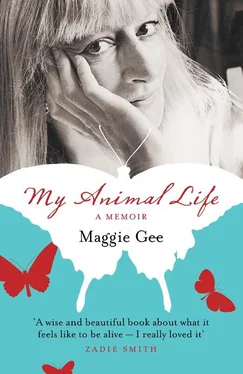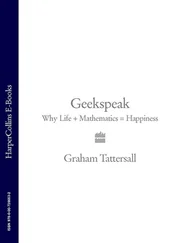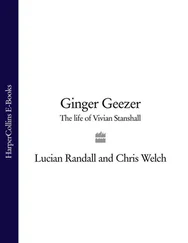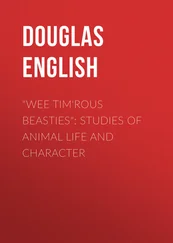‘Come to the breast-screening van!’ she bade me. ‘I take any screening I can get. It’s all on the NHS, it’s great!’ It was a common feeling among the generation who saw the Health Service’s miraculous beginnings. I went with Mum, in my mid-twenties, to the breast-screening van in the windy gravel car-park. There my breasts were compressed between two hard metal plates, which were squeezed together till I felt like screaming. Later I discovered that in women under fifty the risk of having cancer is outweighed by the chance of cancer started by the X-ray.
Never give advice. No one will thank you.
And yet, in my sex life, and my love life, I needed advice, and my mother couldn’t give it. This is no criticism; she was unequipped. She only ever slept with one man, my father, and she felt completely at sea in the sixties. (Just as the young were; we were making it up. We felt we were free in an enormous playground, and when we spotted people crying in the corners, it seemed like an error on their part; and when we were the hurt ones, we felt at fault, for the new rules, surely, should benefit us all.)
Why, then, did some of us have bad dreams?
Mum’s dissatisfaction with her own marriage meant she did not want to foist the same thing on her daughter. Instead she struggled to understand the tortuous comings and goings in my emotional life. It couldn’t be good that I was having a relationship with a married man, could it? Or with more than one man at once? And yet she was reluctant to judge. If he loved me, this might be better than the narrow logic of her own life. Did it make me happy? she asked. I gave her some simplified version of the truth. She only wanted me to be happy, she said. If I loved X, she would too. She never asked me — as my teens sprinted into my twenties, then my late twenties, and I lived on my own; turned thirty, thirty-one, thirty-two — whether I wanted to get married, or have children. And to give him his due, nor did my father. Once I was an adult, they left me alone to make my own mistakes, which I did.
But now I see we did need some advice, we liberated women, from the elders of the tribe. I was living my life in a piecemeal way, as an individualist, a thinker, a writer. I lived in my head, and had sex with my body, and my heart beat fast when I listened to music, the glorious music of love of the sixties, Motown, the Beatles, the Stones, Soul, the sublime hanging gardens of ‘A Whiter Shade of Pale’. My heart seemed to recognise a longing for love that was not fulfilled by the life I led, but my head came to no conclusions, and my body continued to enjoy itself. The three of us hardly spoke to each other.
Yet my unconscious was semaphoring frantically to me. I began to have dreams, one of the only two recurring dreams of my life, in which I’d had a tiny baby, but lost it. It had fallen on the floor, or rolled under a chair, and I’d forgotten about it, not fed it, lost it. Sometimes there was more than one midget baby. This dream came again and again, insistent, a few months apart, until it was familiar, and so was the feeling of sadness it brought, the attempt, too late, to find the missing dream-infant, from which I always awoke empty-handed. One day I told this dream to my friend Barbara, who was also on the pill, like me, and having sex, but not getting pregnant. Although she had never wanted children, she told me that she had the same dreams. The fine hair on my arms stood on end. And then we both asked other young women. Many of us turned out to share the same dream life.
We were all guinea-pigs in a chemical war that was being waged in the recesses of our bodies. Of course we didn’t consciously see what we were doing, we clever undergraduates, we liberated women, but the collective unconscious was savvier than us. Our bodies had found a way of talking to us, showing the ghost babies that weren’t being born, for the pill did not always prevent conception; it also stopped fertilised eggs implanting. We were watching our own dramas while we slept, but our waking selves remained strangely unmoved.
Of course my parents were not able to advise me. What was happening was so utterly different from the world they had known, the war, rationing, the hasty marriages to keep women safe and allow the men to have babies before they faced death. They had been short of everything, including sexual information, in the nineteen-thirties, when they were young. Both of them were virgins in 1944, when they married each other, my father aged thirty, my mother twenty-seven. My mother was pregnant with my brother that year and still thought that babies came out of the belly, which would part down the line from navel to pubis. Her mother had told her absolutely nothing. And then when the straitlaced, family fifties replaced the frenzy of the war, sexual freedom was in short supply. They had too little, and we too much.
Now I look at my daughter’s generation, and things have changed again, but I suspect there is more in common between my nineteen-sixties and Rosa’s two-thousands than there was between my generation and my mother’s. I talk to my daughter. We talk to each other. I can at least tell her the mistakes I made, though she, of course, will learn from her own, a better way of learning than by hearing advice.
Better but more painful. I learned through sorrow. Pleasure in the short run, tears later. This is what I learned. If you want to have children, choose a marrying man, and the choice of those is wider when you are younger. A marrying man, not a married man. There are men who want to marry and have children, but they tend to get snapped up before the others. By twenty-five, a lot of them have already gone. Around thirty, the last proto-dads are homing keenly in on the proto-mums. If a woman doesn’t start searching till she’s in her thirties, the odds are less good, and the search more desperate.
It’s crude, it’s glib, but it’s roughly true. I do believe we learn from other people’s experience; it must be one reason why language skills evolved.
(Only two of my close friends began their families in their twenties. Most of us girls never gave it a thought. One of those two was Pippa, a doctor’s daughter. ‘My father always told us, have your first child before you’re thirty.’ This piece of advice from an elder bore fruit. Uniquely among my clutch of graduate friends, Pippa has three grown up children.)
Mum gave no advice about marriage or children, but her folk wisdom came into play when I told her that Nick and I, who had been dating for four months or so, were helping my friend Barbara to refurbish her Holland Park flat. We were spending days happily artexing ceilings and painting walls together, side by side. ‘Nest-building,’ Mum said. ‘You’re nest-building.’
Before long we came to stay with Mum and Dad for the weekend. Nick had borrowed a little yellow Beetle car from his friend John. My parents were welcoming — no wonder: I hadn’t brought many boys to meet them. I didn’t trust the boys to like them: nor was I sure they would agree to come. My mother was captivated when we went for a walk and Nick worried in case I would be cold, and made me put a jacket on. I wasn’t so sure about Dad’s reaction; Nick had admitted he didn’t like football. My father loved football. All men should like football.
Things took a major turn for the worse next morning when Nick and I set off for the sea. On our speedy way out Nick barged the yellow VW into our neighbour’s low chain fence, flattening a post or two. ‘Oh god oh god,’ I said, but Nick was already driving off, at high speed, had gone, by now, too far to turn back, leaving the evidence of our guilt behind us. I was shocked, but giggling with panic and excitement. Nick has always had an antic self, a self of rash or dashing acts and surreal invented voices, improvistos . And yet, on the small white beach at Weybourne, his arm sheltering me from the breeze, we had a short talk and agreed we would get married, and when we went home, he asked my father.
Читать дальше












